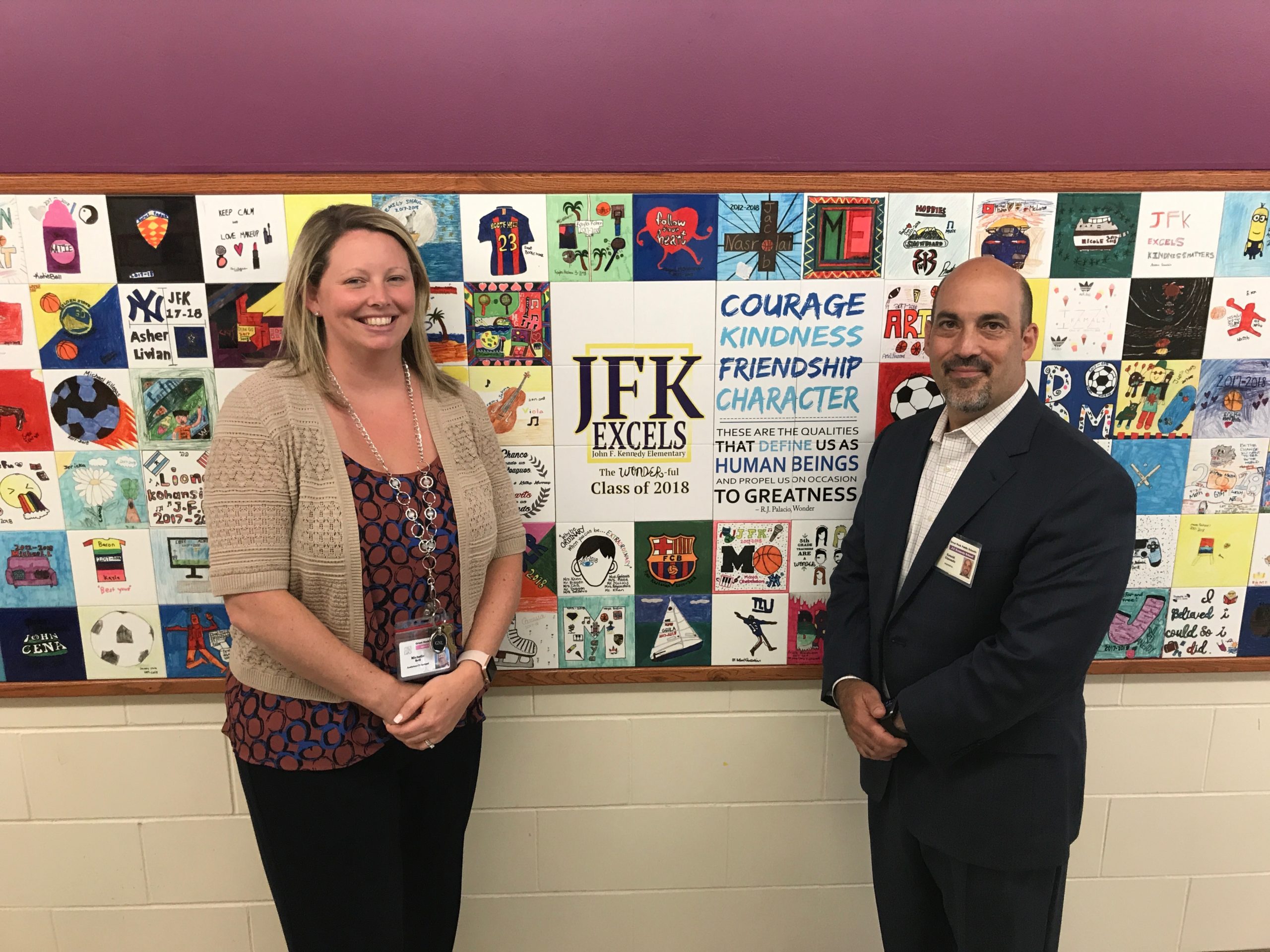Great Neck school officials made a case for their decision to introduce a pre-kindergarten program for John F. Kennedy Elementary School on Thursday night, citing both the benefits of pre-K and higher needs at JFK.
Kelly Newman, the assistant superintendent for elementary instruction in the Great Neck schools, said a review of state data found John F. Kennedy School had the highest concentration of students who are economically disadvantaged or having disabilities.
According to the state education department, 23 percent of students had disabilities and 29 percent were considered “economically disadvantaged” in the 2016-17 school year.
Newman also cited research from W. Steven Barnett, an education economist and researcher, that shows a well-designed pre-school program can lead to higher test scores, lower grade retention and higher educational attainment.
“And the strongest evidence suggests that economically disadvantaged children reap the greatest longterm benefits from participation in pre-school,” Newman said.
Newman also noted the district’s own research, which found that students who were in the district’s universal pre-kindergarten program at the Parkville School showed greater academic and social skills.
“Kindergarten teachers across the district reported a positive difference,” Newman said, “They reported that children who attended a pre-k program entered kindergarten with, for example, a better knowledge of sight words and concepts of print, a more sophisticated vocabulary and a greater likelihood and ability to generate ideas and ask questions.”
Superintendent Teresa Prendergast had first announced the decision in mid-December, citing the school’s larger concentration of higher need students and research suggesting pre-K can lead to higher rates of academic success.
School officials had begun looking into alternatives after the initial defeat of a 2017 bond issue that included a $17 million early childhood center, according to Barbara Berkowitz, the president of the school board.
In another unrelated presentation, various school administrators also discussed the school district’s mental health resources and curriculum.
According to the Great Neck schools, they have more than 30 psychologists and social workers across the district, as well as 40 guidance counselors across the district. Additionally, the school district also embraces mindfulness areas, social-emotional learning programming, and special assemblies and programs, administrators said.
Also among the resources for students, administrators said, are counseling, coordinated care consultation with private therapists, connecting families with community resources, regular communication among staff members, and a district crisis team.
Staff also use a “variety of methods” like referrals, observation and early screening to find more at-risk students, they said.



